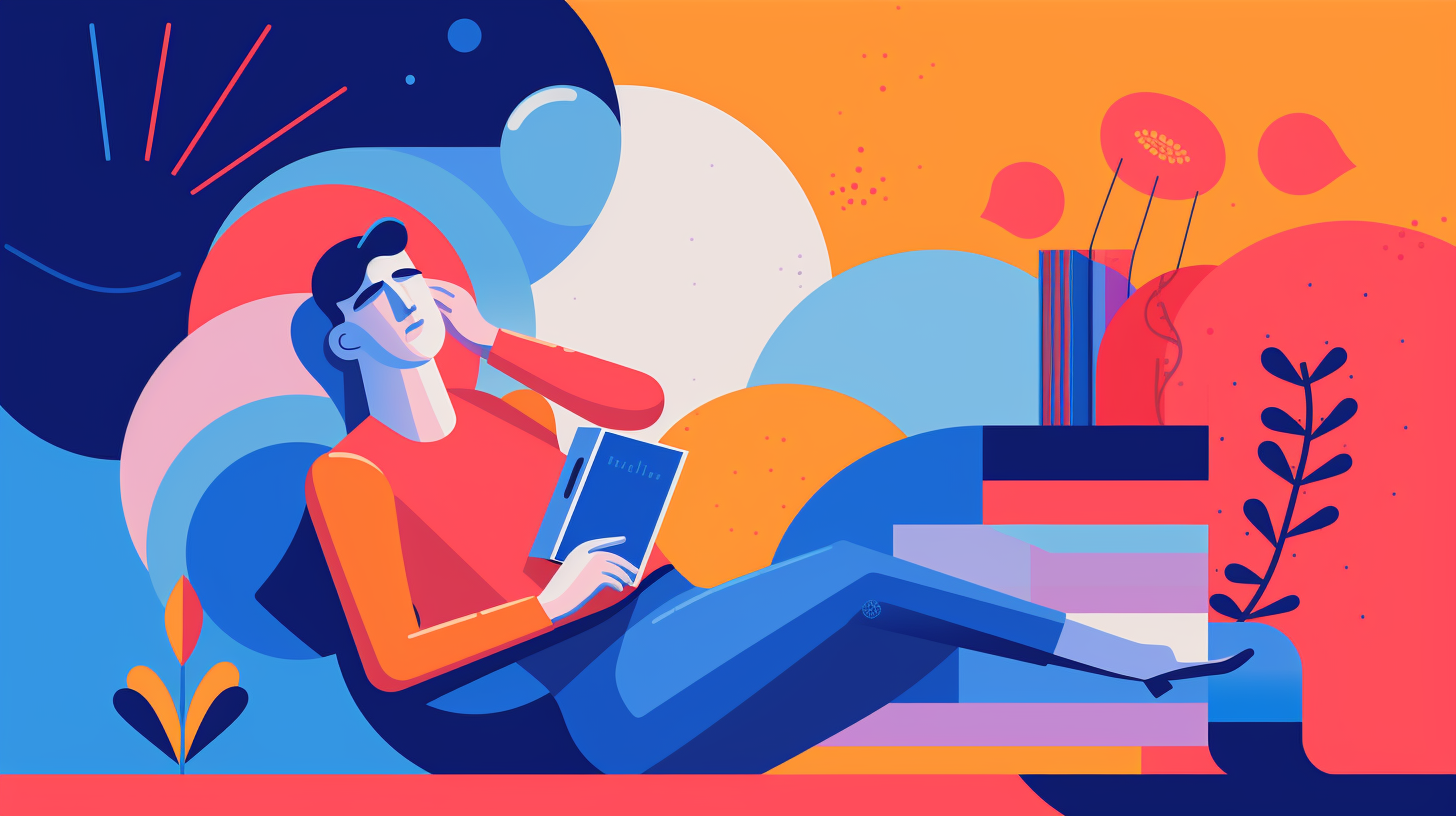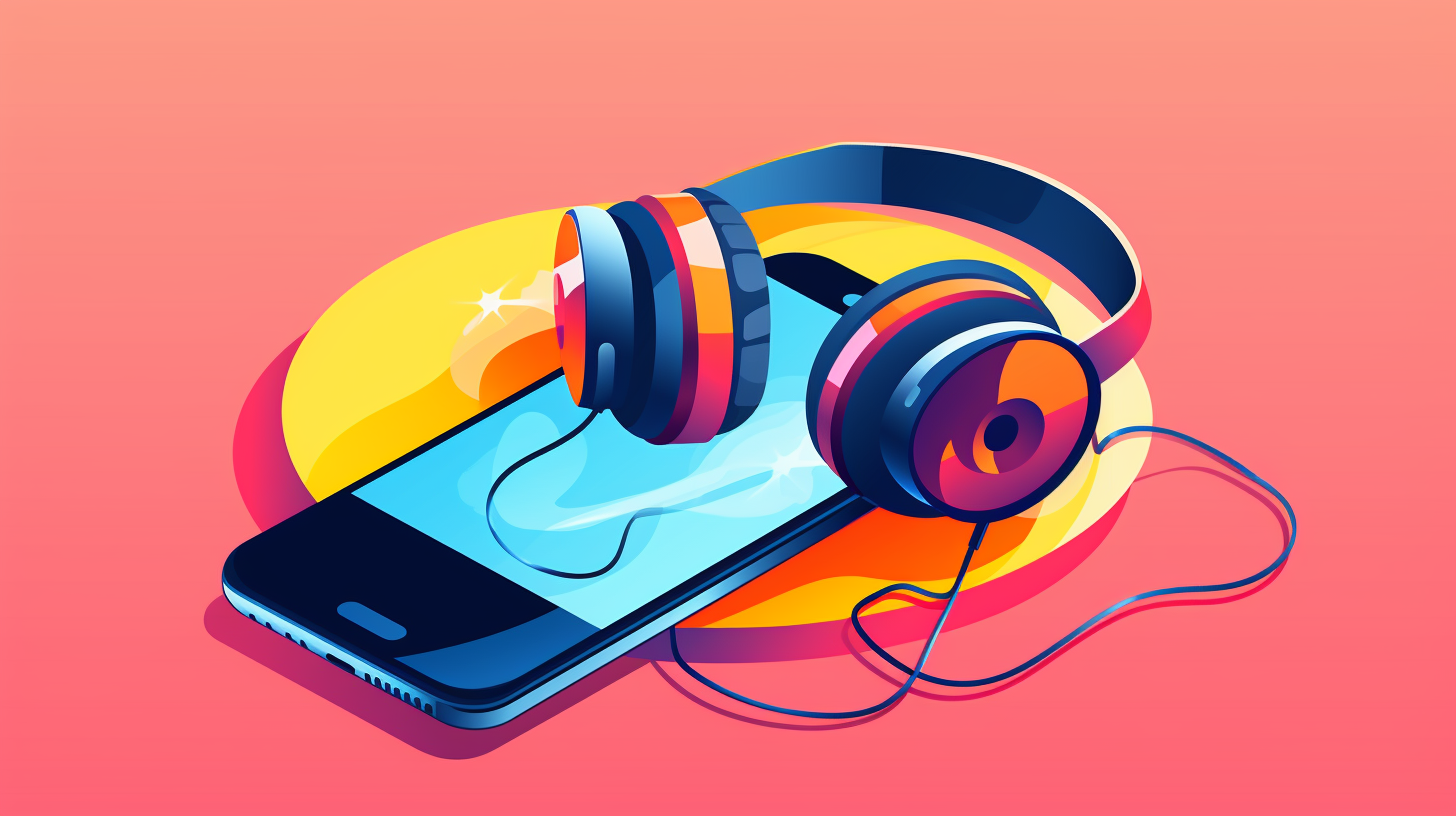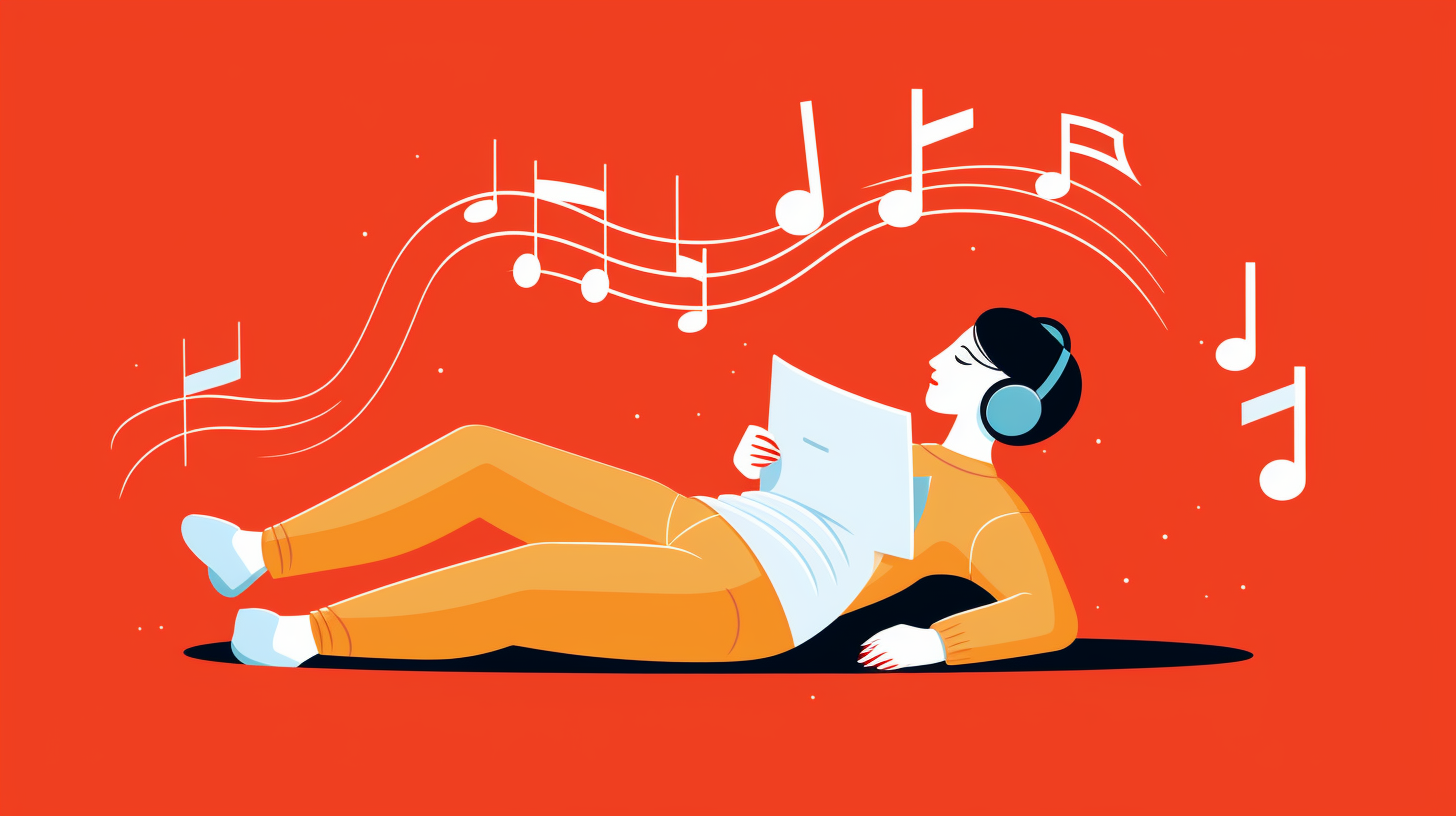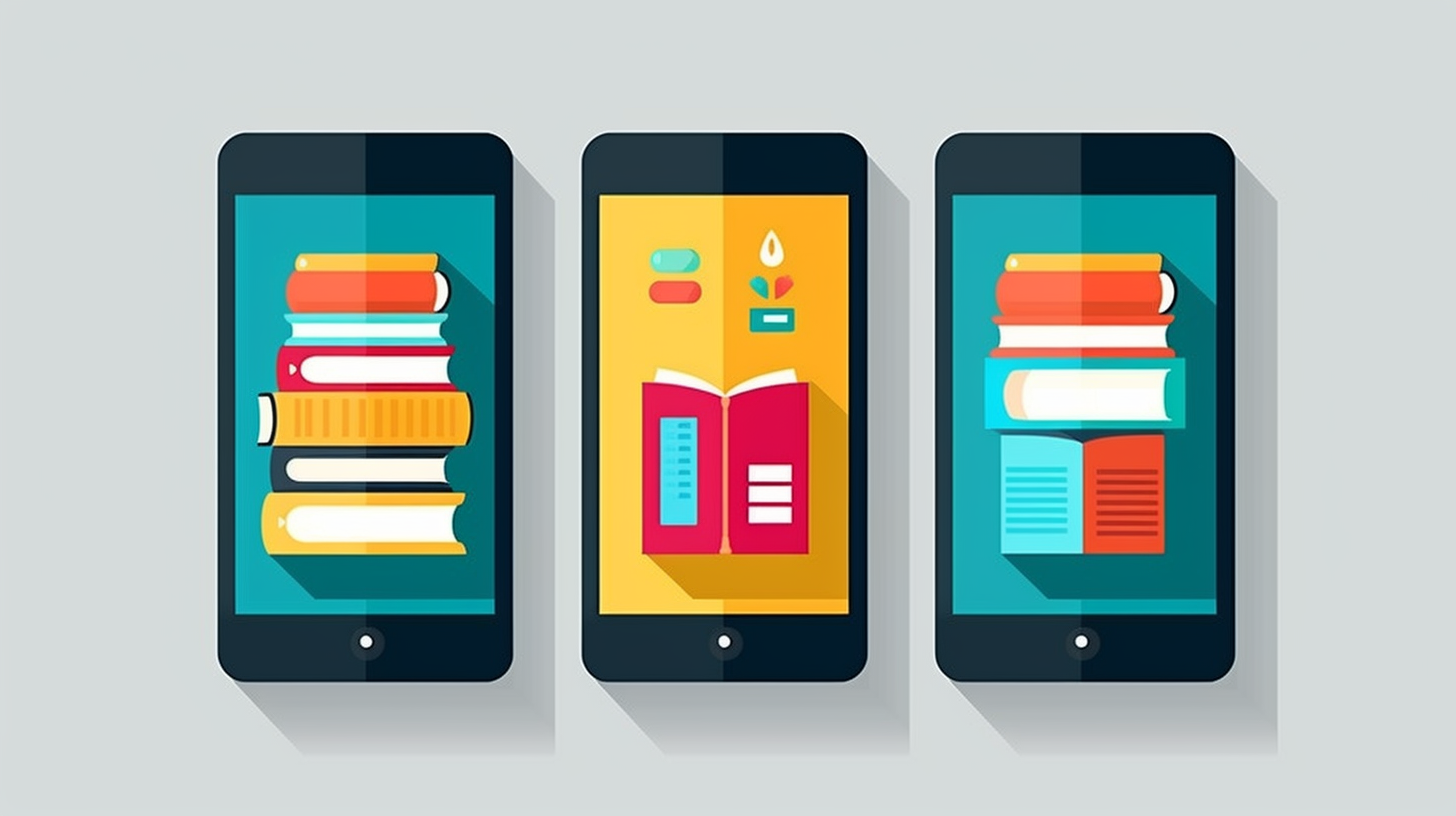The phenomenon of feeling sleepy while reading has left many book lovers pondering the intriguing question, “Why does reading make me sleepy?”. Many readers nod off after a few pages, not just because the material is dull. We’ll investigate the science behind sleepiness while reading, exploring how your brain responds to the written word.
Is it the content that’s to blame? We’ll discuss how lacking engaging content can contribute to your drowsiness. Plus, we’ll examine how your sleep environment and personal factors play a part in this common conundrum.
The Science Behind Sleepiness While Reading
Eye Strain and Fatigue
Your eye muscles are constantly at work when you’re engrossed in a book. They help you track the text from one end of the page to the other and focus on the content. This action resembles any physical exercise that can wear out muscles over time. You might not notice it immediately, but reading requires a sustained effort from your eyes. They must continually adjust to different words, font sizes, and light conditions. This can lead to eye strain or fatigue, especially if you’re reading in dim lighting, which demands even more effort. When your eyes tire, they signal to your brain that it’s time to rest, potentially leading to you falling asleep while reading.
The Relaxation Response
As you settle into a comfortable spot with a book, your body often takes this as a cue to relax. Dimming the lights to create a cozy atmosphere only enhances this effect. The brain interprets these signals and starts producing melatonin—the sleep hormone. So, while you’re trying to find out why you fall asleep when you read, consider the environment you’ve created. It might be prompting a relaxation response. Audiobooks can offer a solution by allowing you to close your eyes, reducing eye strain while continuing to enjoy the story and keeping you engaged without the same level of sleepiness.
Cognitive Load
When a text is dense or filled with complex jargon, your brain works overtime to process the information. This increased cognitive load contributes to mental fatigue, making you more prone to feeling sleepy. Conversely, if you’re not fully engaged with the material due to its lack of excitement or relevance, your concentration may wane, and you can doze off. Audiobooks can mitigate this by providing a more dynamic reading experience. You can choose titles with engaging narrators whose voice inflections and pace keep you attentive, possibly warding off the sleepiness that reading text might evoke.
Lack of Engaging Content
Boring or Monotonous Writing Style
You’ve likely noticed that specific texts are more likely to induce sleepiness. This often stems from a boring or monotonous writing style. Your brain craves variety and engagement, making you more susceptible to feeling drowsy when the writing fails to capture your interest. Reading becomes a chore without varied sentence structures, compelling narratives, or thought-provoking content.
Eye fatigue sets in faster, which is a critical factor in why reading makes me sleepy. Unlike audiobooks, which use vocal cues and tonal shifts to keep you attentive, the uniformity of text can contribute to the urge to fall asleep when reading.
Lack of Emotional Connection
Creating an emotional connection with the material is paramount to staying engaged. When you’re reading pages that don’t resonate emotionally, your mind tends to wander, and falling asleep while reading can occur. Emotionally engaging material stimulates various brain regions, keeping you alert and invested in the outcome.
Some readers find that switching to audiobooks can mitigate this issue, as the narrator’s expressions and the drama of their voice can foster a stronger connection than the written word alone.
Lack of Mental Stimulation
Mental stimulation is crucial for keeping your brain active and alert. Mental fatigue sets in if your reading content doesn’t challenge your thoughts or present new information. Falling asleep reading often happens because the material doesn’t offer enough cognitive stimulation to keep your brain engaged.
Audiobooks can be a fantastic alternative, offering a dynamic experience that stimulates you mentally. The convenience of multitasking while listening means that you can stay active, combating why do I get sleepy when I read and enhancing your ability to retain information.
Sleep Environment
Comfortable Reading Position
You’ve likely wondered, “Why do I get sleepy when I read?” Part of the answer lies in your reading position. Ergonomics is key—you should aim for a posture that supports alertness. Ensure your back is supported with a straight spine and your neck isn’t straining. Chairs with lumbar support can prevent discomfort that often leads to feeling drowsy. Reading at a desk or table can keep you more alert than lounging on a sofa or bed. Remember, audiobooks allow you to move around and stay active, keeping sleepiness at bay.
Ambient Light Levels
Lighting sets the stage for your reading experience. Dim lighting may contribute to your question, “Why does reading make me sleepy?” because it can strain your eyes, leading to fatigue. Bright, even lighting that mimics natural daylight should be your goal to maintain focus. Audiobooks free you from lighting constraints; listen anytime, anywhere, without worrying about poor light conditions affecting your engagement.
Noise and Distractions
Your environment’s sound can be a significant factor if you’re falling asleep while reading. Unexpected noises or the monotony of a quiet room can lead to sleepiness. Create a space with minimal distractions, or consider soft background music to help maintain concentration. Audiobooks offer a distinct advantage—engaging narrators and carefully crafted soundscapes hold your attention effectively, combating the urge to snooze.
Personal Factors
Time of Day
Your internal clock significantly influences alertness, and the time of day you choose to read could be why reading makes you sleepy. Circadian rhythms govern your sleep-wake cycle and can nudge you towards sleepiness at certain times. Dawn and dusk are natural triggers that tell your body it’s time to wind down. If you read during these periods, falling asleep while reading is more likely, especially if the content isn’t stimulating enough. Audiobooks prove advantageous here, as the engaging narration can counteract the time-of-day drowsiness, keeping you more alert than traditional reading.
Physical and Mental Health
Physical and mental health are pivotal to maintaining concentration and avoiding fatigue. If you’re feeling under the weather or dealing with stress, you might find reading makes you sleepy faster than usual. Your body’s need for rest can outweigh the desire to push through another chapter. Audiobooks provide a less taxing alternative when you’re not at your best. Listening rather than reading requires less mental effort, allowing you to enjoy stories without the same level of cognitive engagement, which can be beneficial when you’re recuperating.
Sleep Deprivation
Why do I get sleepy when I read? Sleep deprivation might be a key factor. Inadequate sleep can impair cognitive function, slow your thinking, and sap your energy, making it challenging to keep your eyes open while reading. Reading’s passive nature can cue your body to shut down when you’re already low on sleep. In such situations, audiobooks can be a savior; their auditory stimulus can keep you more engaged and help ward off the urge to fall asleep when reading, offering an experience that doesn’t compromise your remaining alertness.
Strategies to Stay Alert While Reading
Take Breaks
You might ask, “Why do I fall asleep when I read?” Taking regular breaks is fundamental for preventing this. A break every 30 to 60 minutes recharges your mind and keeps drowsiness at bay. Use a timer as a reminder to step away and engage in activities different from reading. Stretch, walk, or focus on something else – this invigoration is crucial for maintaining concentration without falling asleep reading.
Engage with the Material
If reading makes you sleepy, the solution could lie in your choice of material. Engage with content that sparks interest and curiosity. Stimulating topics keeps your brain actively working and prevents the monotony that often leads to falling asleep while reading. Audiobooks excel in The engagement factor, offering an auditory experience that can keep you more alert than traditional reading.
Read in a Well-Lit and Comfortable Space
Your environment significantly impacts alertness. Reading in a space with optimal lighting is vital to reduce eye strain and fatigue. Halogen and fluorescent bulbs are much more effective than regular bulbs. Also, blue and white lights can enhance cognitive performance and alertness. Ensure your sitting posture is upright with proper back support to promote better blood flow. These elements contribute to a comfortable yet alert reading experience, helping to answer the question of why reading makes me sleepy.
Conclusion
Remember that reading shouldn’t be a snooze fest! By incorporating regular breaks, you’ll give your mind the breather it needs to stay sharp. Choosing materials that genuinely capture your interest will keep your brain engaged and your eyes open. And don’t underestimate the power of your environment—proper lighting and a cozy spot can make all the difference. With these tips tucked into your bookmark, you’re all set for a lively, yawn-free reading session. Keep turning those pages, and enjoy the journey through each story, article, or document with fresh eyes and an alert mind.
Frequently Asked Questions
Why does reading make me sleepy, ADHD?
Adults with ADHD may struggle with reading due to difficulty maintaining focus, leading to fatigue and drowsiness. Distractions, difficulty with comprehension and retention, and a tendency to daydream can exacerbate this issue.
Why do I fall asleep when reading or watching TV?
Falling asleep while reading or watching TV could suggest you’re tired, the activity is too passive, or the environment is too comfortable. Additionally, uninteresting content may not keep your mind sufficiently engaged to stay awake.
Is reading actually good for you?
Yes, reading is beneficial for mental health and brain function. It can significantly lower the risk of conditions like Alzheimer’s disease by keeping the brain active and engaged.
What does reading do to the brain?
Reading boosts brain function, increasing connectivity, cognitive abilities, and memory. It also lowers stress levels, promotes relaxation and sleep quality, and may reduce the chances of developing neurodegenerative diseases.




